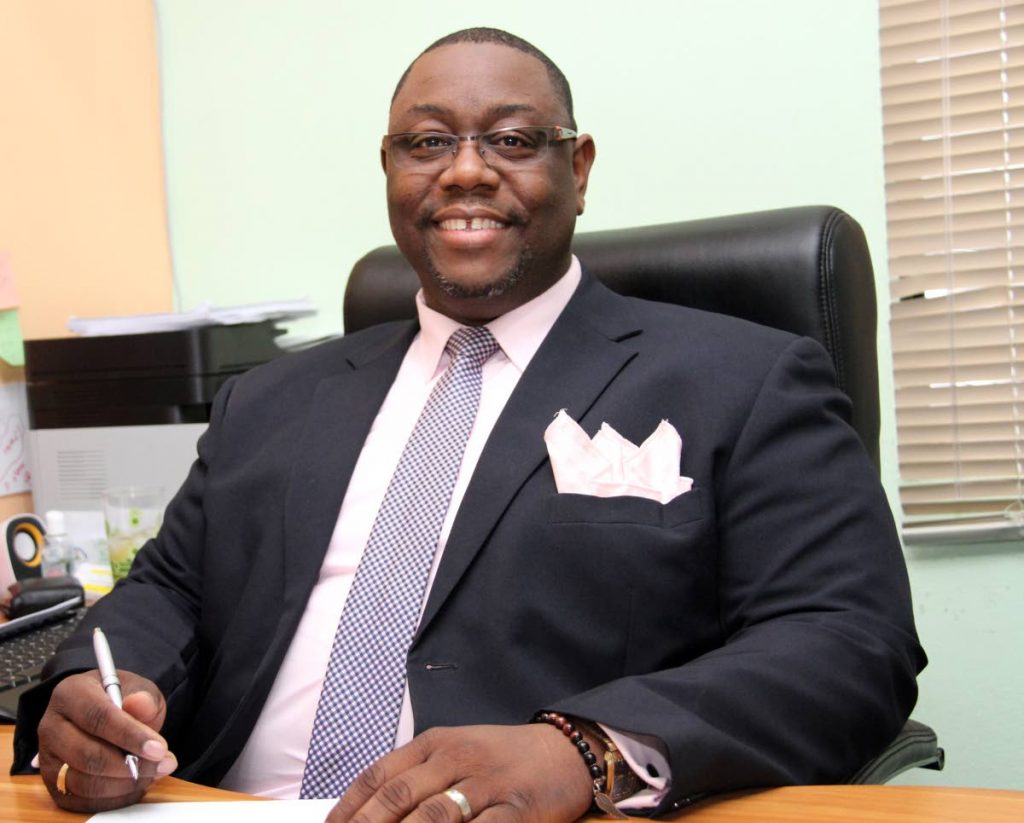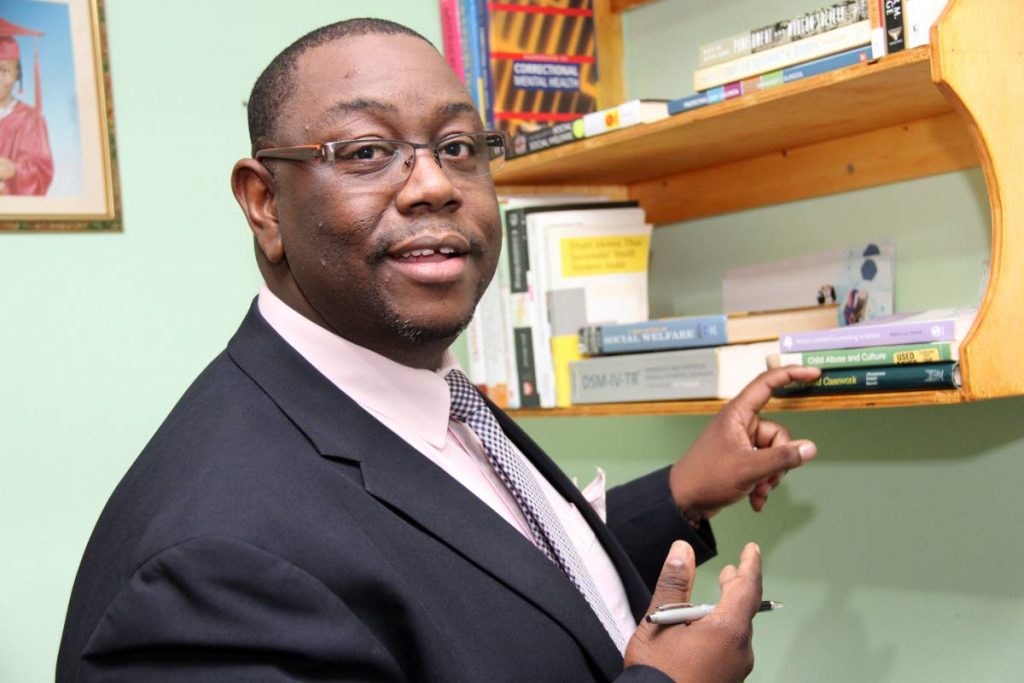New Children's Authority head: Mental health still a secret

His love has always been service, in church and in the community. So when Hanif Benjamin returned to TT after years of study and a lot of experience in social work and trauma, he decided to put them to use to help the people of his country.
Benjamin, the new chairman of the Children’s Authority, grew up in Marabella and was highly involved in church, including youth groups, and as a member of the Altar Servers Association in south Trinidad.
“A lot of people would have leaned on me for advice and stuff growing up. And so, to be quite honest with you, I think that I’ve been doing social work for a long time, but I just didn’t know the name of what I was doing. I actually wanted to be a lawyer, but I was too broke to be a lawyer at that time, because you had to pay, and I grew up extremely poor.”
He, therefore, started a bachelor’s degree in criminal justice at the College of Science, Technology and Applied Arts of TT and received a partial scholarship to complete the degree at Monroe College in New York.
He moved on to Fordham University, where he received a clinical masters in social work specialising in children, family, and trauma. He became a licensed master social worker (LMSW) and worked in New York with children in the areas of child protection, juvenile justice, and with many youth programmes.
He later mastered youth development training at Cornell University and became a trainer to certify other trainers in youth development. He also completed a criminal traumatology programme at the Traumatology Institute (Canada), and is now a registered member of the American Academy Experts of Traumatic Stress.
Benjamin is currently doing his PhD at the University of the West Indies in clinical social work with an emphasis on treating child trauma.
He said when he went to New York to study, the world of human services opened up to him and, since he enjoyed helping people and giving of himself, he continued along that vein. He said although the work was stressful and at times daunting, he woke up everyday refreshed and excited with the goal to help as many people as he could.
He returned to Trinidad in 2012 to be with his mother, who was battling and eventually won the fight against cancer. Unfortunately, his return was not very smooth, as he could not find work.

“When I came back jobs were extremely difficult to get, especially with me coming back with a lot of training... I was exploding with knowledge and experience and Trinidad and Tobago was a place that needed it but, somehow, I’m not sure if Trinidad was ready, or they didn’t understand, or whatever it is, but I couldn’t get work.”
He also noticed there were no social service agencies that provided a variety of services including psychology, social work, and mediation, under one roof. Therefore, he created a social services agency, The Centre for Human Development Ltd (TCHD).
“It was always about how I could help people with the skills I have? How can I move the lives of people. I felt people were suffering because I grew up suffering; I grew up poor so I know what it is to be marginalised, I know what it is to be written off as no good, for people to look at you and say you would never amount to anything... So I used the power of education.”
Since then, TCHD has evolved into the Centre for Human Development Group of Companies, which merged the concepts of providing clinical services, training professionals, and working in communities so they could support the families therein.
The group includes TCHD; TCHD Postgraduate Training Institute; TCHD International Centre for Mediation and Mediation Studies; and the NGO the Centre for Change. All the organisations had the aims of strengthening families, building communities, and developing minds because, he said, unless the mindset of a people was changed, they would never move forward.
In addition to the lack of jobs and social services, Benjamin said he also realised that mental health and psychological work in this country was like a secret. As a clinical therapist, he would like to open those issues to the public and fight the stigma, because he found that many people were suffering in silence.
“We see the people on the street and we call them madmen and madwomen, but we don’t know that there was a beginning and that beginning is a person who is dealing with a mental illness, not receiving treatment and a family that can’t support them. And because they can’t support them, where do they end up now, on the streets. And it’s not because they are drug addicts, they use drugs as medication.”
He said people who lived with depression often believed they were alone. They put on the mask because of the taboo of depression or mental illness, so they live in silence. However he said there was always a sign, including self-harm, which could devolve into risky behaviour as a person got older.
Benjamin said if there was more awareness, people would realise they were dealing with a mental illness. And if the stigma of mental illness were removed, people would more readily come forward to receive help instead of self-medicating, which could include the use of substances or risky behaviour.

Comments
"New Children’s Authority head: Mental health still a secret"